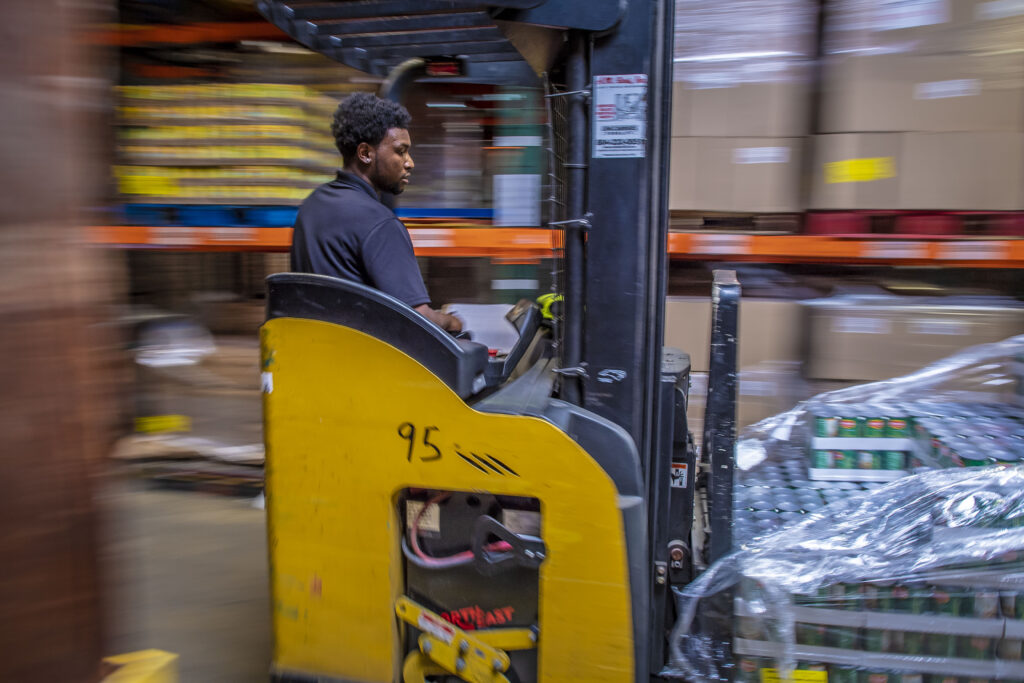
September is National Food Safey Education month, a good reminder for every part of the food supply chain to keep food safe and protect public health. At Worley Warehousing, we’re taking a look at certification by AIB International, a trusted global audit organization, as a key differentiator in food logistics and warehousing.
Having AIB certification shows the 3PL has enhanced safety, compliance and global standards in place for handling and storing food and beverage ingredients and products. The credential means the provider has process-driven operations with standardized and repeatable food safety practices, regardless of personnel changes.
While all food facilities must meet federal, state, and local food safety regulations, AIB International standards are even stricter. AIB certification supports federal FSMA compliance by ensuring traceability, recall preparedness and rigorous food safety systems, including training. In short, AIB certification shows a food logistics provider goes beyond legal requirements, reducing the risk of costly recalls and legal issues.
Audits by AIB International for food safety certification cover several areas. On-site audits are conducted annually by AIB to maintain certification. Every facility is audited separately and includes a review of documentation such as licenses and quality assurance records as well as a thorough physical inspection, examining everything from pallets and shelving to trailers and dock doors.
Here is an overview of five key AIB areas (known as the “Consolidated Standards for Inspection”) for food distribution centers which AIB audits in its annual Good Manufacturing Practices (GMP) inspections. Each of the following categories contain many stringent quality standards that every food facility must meet to keep food products safe:
Operational Methods and Personnel Practices
Focuses on the safe receipt, storage, handling, monitoring and processing of raw materials to prevent contamination and ensure food safety. It ensures that personnel, processes and conditions maintain safety throughout production, whether for further manufacturing or distribution.
Worley uses continuous improvement practices and employs four quality assurance managers (QA) who oversee its training programs, and conduct monthly self-inspections of its facilities. These inspections are modeled after the AIB inspection process, and Worley QA managers also conduct cross-audits to check each other’s work in the pursuit of quality.
Maintenance for Food Safety
Worley is committed to safe storage and handling practices and maintaining its equipment and facilities. The 3PL operates an in-house maintenance department, preventive maintenance programs, including a work order system.
Cleaning Practices
Worley follows a comprehensive Master Sanitation schedule to properly clean and maintain its facilities, including conducting regular deep cleanings throughout its facilities.
Worley employs four in-house state-certified pesticide applicators who follow all required interior and exterior pest management practices. In-house pesticide applicators are a unique distinction which makes the 3PL highly proactive in pest control.
Adequacy of Prerequisite and Food Safety Programs
Worley facilities are always in ready-to-inspect mode with its core business processes encompassing the latest industry best practices for the safe handling and storage of food. These practices include 100 percent electronic documentation and comprehensive training and inspection programs.
Each of these categories is worth 200 points for scoring in the AIB audit process for a total of 1,000 possible points. Facilities must achieve a minimum score of 700 points to pass AIB certification inspection. Facilities scoring in the top 25% of all scores for their business category are awarded a Superior rating.
Worley Warehousing’s AIB Superior ratings
For over 25 years, Worley Warehousing has participated in AIB certification across its facilities — Worley currently operates eight warehouses — making it the ideal 3PL partner for food logistics. Driven by its dedicated team members, Worley has consistently achieved Superior ratings in the 950 points or above range. In 2018, the company was proud to have earned a 1000-point Perfect score from AIB International.
Worley’s robust WMS system and other IT systems are highly tailored to the company’s business processes, in line with evolving FSMA compliance and AIB certification standards, including cold chain requirements. For instance, any product recalls are instantly tracked by lot and product numbers in the company’s robust WMS. Systems are maintained and updated with current practices by the company’s in-house IT department.
Worley distribution facilities are high-capacity and its scalable technologies and repeatable business processes ensure food safety.